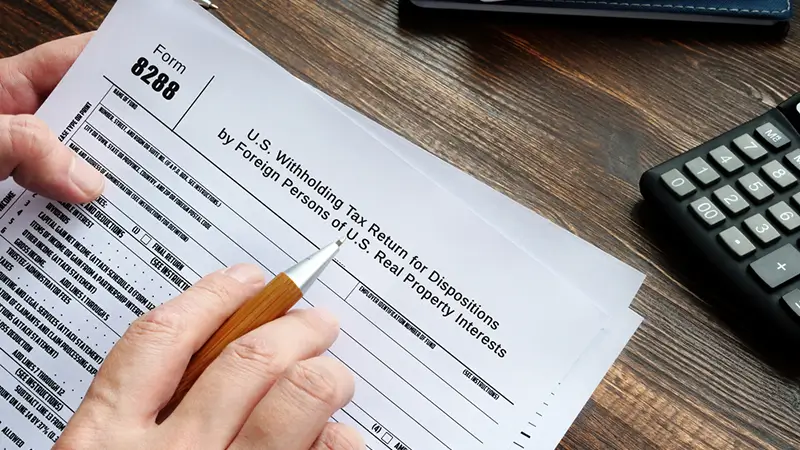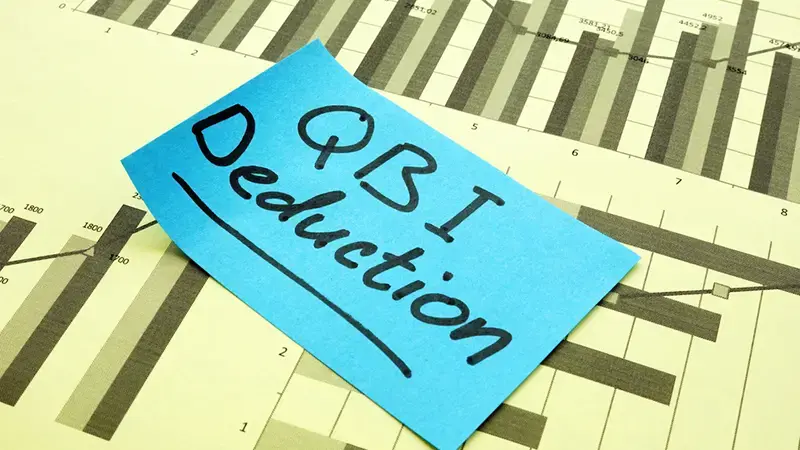U.S Withholding Tax Return for Certain Dispositions by Foreign persons
Form 8288 is the go-to document for reporting and remitting withheld amounts from specific transactions and distributions governed by sections 1445...

A 1031 exchange, named after Section 1031 of the U.S. Internal Revenue Code, is a transaction in which eligible property is exchanged for property of "like-kind," and any gain or loss is deferred for federal income tax purposes. Typically, when a taxpayer sells a property, any gain or loss on the sale is recognized in the tax year in which the sale occurs. However, in a like-kind exchange, any gain or loss on the sale of the relinquished property is deferred until the replacement property is sold.
The fundamental principle here is that the transaction is considered an exchange rather than a standard sale, allowing the taxpayer to postpone capital gains taxes that would typically arise from selling an asset. A transaction meets the criteria for a 1031 exchange when it involves the exchange of eligible like-kind properties. It's important to note that, following the Tax Cuts and Jobs Act (TCJA), only real property qualifies for a 1031 exchange.
For a real property to qualify for a 1031 exchange, it must be considered real property according to the laws of the state or local jurisdiction where the property is located at the time of the exchange. Additionally, the taxpayer must hold the properties being exchanged for an eligible purpose to qualify for a 1031 exchange.
Examples of eligible purposes include:
Intangible interests such as fee ownership, co-ownership, leasehold, option to acquire real property, easement, stock in a cooperative housing corporation, and shares in a mutual ditch, reservoir, or irrigation company qualify for a 1031 exchange if they are considered real property under Section 1031.
If a 1031 exchange involves both like-kind property and "boot," there may still be a partial deferral of gain. "Boot" refers to any cash or non-like-kind property received during the exchange. In such cases, the taxpayer will recognize a gain up to the fair market value of the boot. However, any loss in the transaction will still be deferred, even if the boot is involved.
All states permit 1031 exchanges, with most following federal income tax guidelines for like-kind exchanges. Certain states, like California, Oregon, Montana, and Massachusetts, have specific "claw-back provision" regulations.
These rules mandate that any appreciation in property value within the state is subject to state taxes, irrespective of whether the property was exchanged in a different state. California, in particular, has unique reporting regulations for like-kind exchanges, while many states impose real property transfer taxes on such transactions.
At H&CO, our experienced team of tax professionals (CPAs) understands the complexities of income tax preparation and is dedicated to guiding you through the process. With a personalized approach, we help you navigate US and international income tax laws, staying updated with the latest changes.
With offices in the US in Miami, Coral Gables, Aventura, Fort Lauderdale, Orlando, Melbourne, and Tampa as well as offices in over 29 countries, our CPAs and International Tax Advisors are readily available to assist you with all your income tax planning, tax preparation and IRS representation needs. To learn more about our accounting firm services, look at our individual tax services, business tax services, international tax services, expatriate tax services, SAP Business One, entity management, human capital, and audit and assurance services.

Form 8288 is the go-to document for reporting and remitting withheld amounts from specific transactions and distributions governed by sections 1445...

The Qualified Business Income (QBI) deduction, also known as the pass-through deduction or section 199A deduction, was established by the 2017 Tax...

The United States-Austria Income Tax Treaty plays a vital role in managing income taxes and fostering economic collaboration between the two nations....